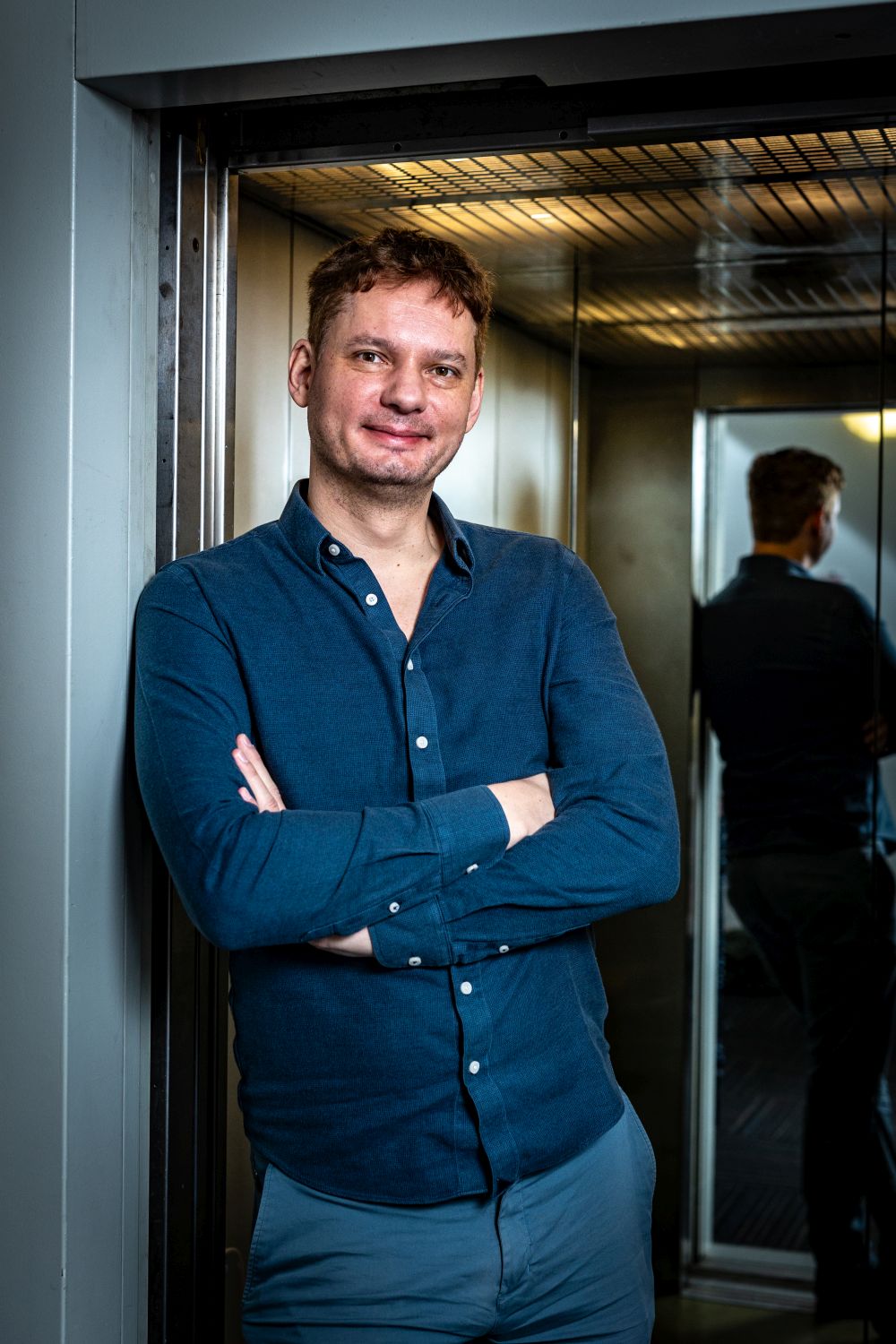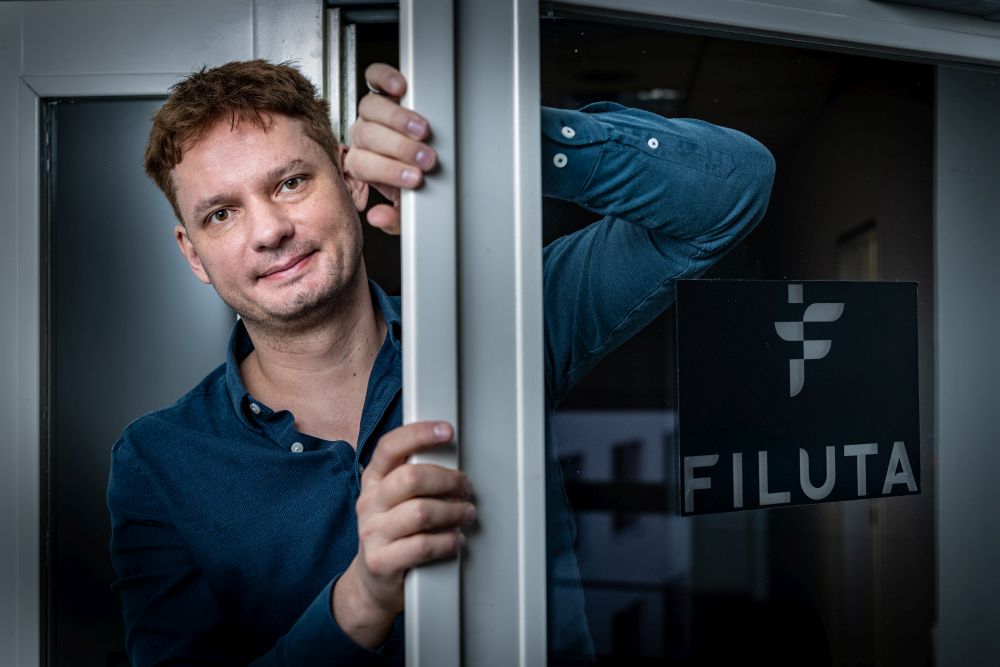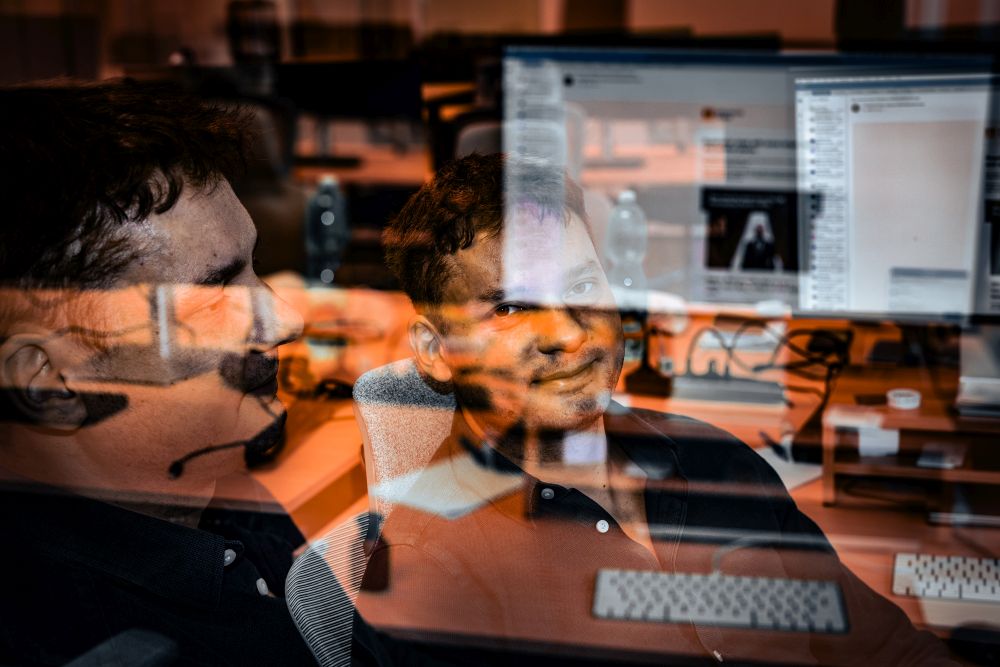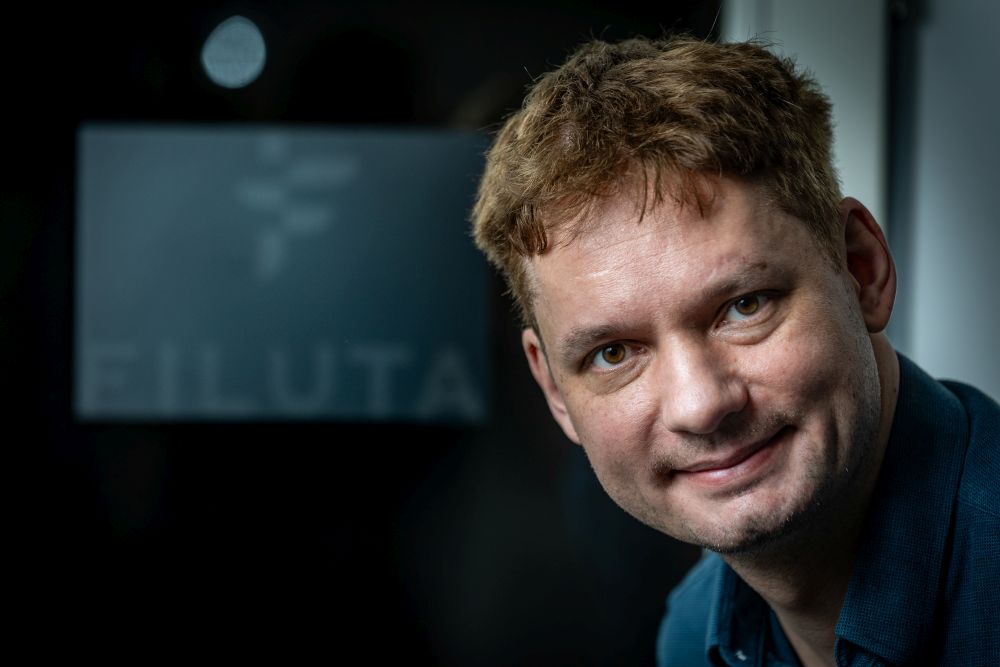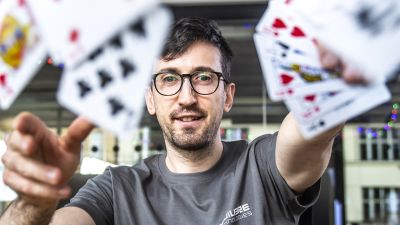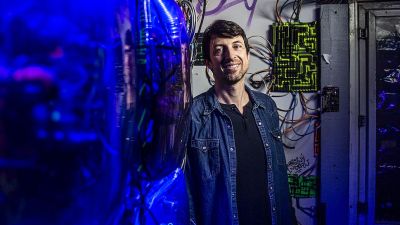He earned a PhD at MathPhys and worked at the legendary Palo Alto Research Center – birthplace of technological breakthroughs like the laser printer and the computer mouse. He contributed to research projects for DARPA, the U.S. Defense Department’s advanced research agency. He advanced so far in his field that the U.S. even offered him a permanent residency permit to continue developing artificial intelligence for American institutions. Filip Dvořák built on this U.S. experience and returned home to Czechia to unlock the untapped local potential, founding a successful startup: Filuta AI.
What does Filuta AI focus on?
We specialise in symbolic artificial intelligence. Over the past two decades, it fell out of the spotlight in favour of subsymbolic AI, but it remains irreplaceable and immensely useful. It’s used in fully autonomous systems in space and in critical autonomous systems on Earth, such as oil extraction. These are contexts where every decision is potentially life-threatening – and therefore must be explainable and auditable. If you make a wrong move, you could cause an environmental disaster or put lives at risk. In such cases, it’s very hard to justify relying on subsymbolic neural networks, which sometimes make errors. At Filuta, we explore all the areas where symbolic AI can be applied effectively.
You’ve even put together a chart for investors and potential clients of the problems Filuta can solve.
Yes – the chart came out of a thorough market analysis. We looked for industries where symbolic AI adds value. The agent we’ve developed can be connected to virtually any third-party system and tasked with testing its functionality. It’s useful, for example, in strategic simulations, video games, the automotive industry, or space research. Take this example: before an automaker releases a software update for its cars, they need to test 20,000 different usage scenarios. Our agents can run through all those scenarios without needing a detailed script. They adapt to the situation – all you have to do is define the goal. This saves customers valuable developer time, eliminates the need for manual testers, and requires no ongoing maintenance.
It’s the best technology humanity has developed so far for autonomous systems. With a very high level of expertise – and in collaboration with the university – we’ve built a genuinely useful product. At the same time, we continue our research and present results at leading global AI conferences.
| Symbolic AI models the world using human-readable equations, logical conditions, graphs, or ontologies. Its decisions are explainable and auditable, and symbolic models typically don’t require vast amounts of data. Subsymbolic AI, on the other hand, models the world as a statistical aggregation of large volumes of observed behaviour. Decisions made this way are harder to explain, and it’s harder to guarantee freedom from random errors or hallucinations. Machine learning and language models – currently attracting much attention – fall into this category. |
You’ve chosen to focus especially on the gaming industry. Why this area in particular?
We’re interested in the concept of digital twins. It’s an approach that has dramatically improved efficiency in many industries by creating a complete digital model of a production environment – like a factory or chemical plant – and testing important decisions there first. The majority of digital twins are, essentially, video games. That’s why we started by integrating into game engines, which are the platforms used to build digital twins. If you’re developing an infotainment system for a car, you use a game engine. If you’re creating a pilot simulator or a strategic simulation, you use a game engine. That’s why we target the gaming industry – they are our primary customers.
The gaming industry alone spends 17 billion dollars annually just on testing games, to ensure buggy products don’t hit the market. Testing is currently done either by people or by automated systems that consume costly developer time. Our agents are cheaper and more efficient because they don’t need explicit instructions or ongoing maintenance – just a goal, and they figure out the path to achieve it themselves. In game AI, we’re one of the first movers. And once our technology has been thoroughly tested in games, it’s universally applicable to any other field that uses digital twins.
You studied at MathPhys, worked as a postdoc at the University of Toronto, and gained experience at some of the world’s most prestigious tech institutions. What led you to leave academia for the world of business?
It was a gradual process. Over time, I realised that pure academic work didn’t fully satisfy me. After leaving the University of Toronto, I joined the Palo Alto Research Center. It’s a hybrid environment – a research lab, but one that immediately applies its results commercially. Among other things, I received a grant for research in AI applied to optimizing traffic in Los Angeles. The goal was to reduce congestion in this massive city. Suddenly, I could see the enormous positive impact such work could have on society. I became excited about creating products with lasting value. Gradually, I came to the conclusion that I wanted to start my own startup – despite offers from many companies and even receiving a U.S. Green Card in recognition of my contributions to AI.
Filuta AI works closely with MathPhys. How exactly?
I studied under Professor Roman Barták, who has long led and advanced the field of symbolic AI at the faculty. He has mentored many top students who’ve gone on to careers around the world, and today, many more are studying with him. We’ve tried to connect with them all. Together with MathPhys, we’re collaborating on further development. So far, we’ve already filed four patents, with authorship including contributors from both Filuta and MathPhys.
In another interview, you said that graduates of MathPhys and other Czech technical universities compare to Ivy League graduates. That’s good to hear.
Mathematics is beautiful in that it’s the same everywhere in the world. That’s why I had no trouble getting my MathPhys degree recognised in the U.S. I stand by my view that Czech technical graduates belong among the global elite. The top five percent of students here – their quality, breadth, talent, and ability to apply what they’ve learned – are on par with the Ivy League. They are the crème de la crème of the field.
That was also one of the reasons I decided to start my company in Prague. I try to inspire talented people with the vision that what we do creates value for society as a whole. I give them motivation that makes them more like missionaries than mercenaries – and that’s why we’ve been able to attract and pay truly top-level talent here.
| RNDr. Filip Dvořák, PhD |
| Graduate of the Faculty of Mathematics and Physics, Charles University, specializing in Theoretical Computer Science, where he also completed his dissertation. He worked as a postdoc at the University of Toronto. His expertise is in symbolic AI. He was the first Czech to work at the Palo Alto Research Center in California. He has worked for Google, Microsoft, DARPA, the research agency of the U.S. Department of Defense, and SLB, the world’s largest oilfield technology provider. In 2022, he founded the startup Filuta AI in Prague. |


